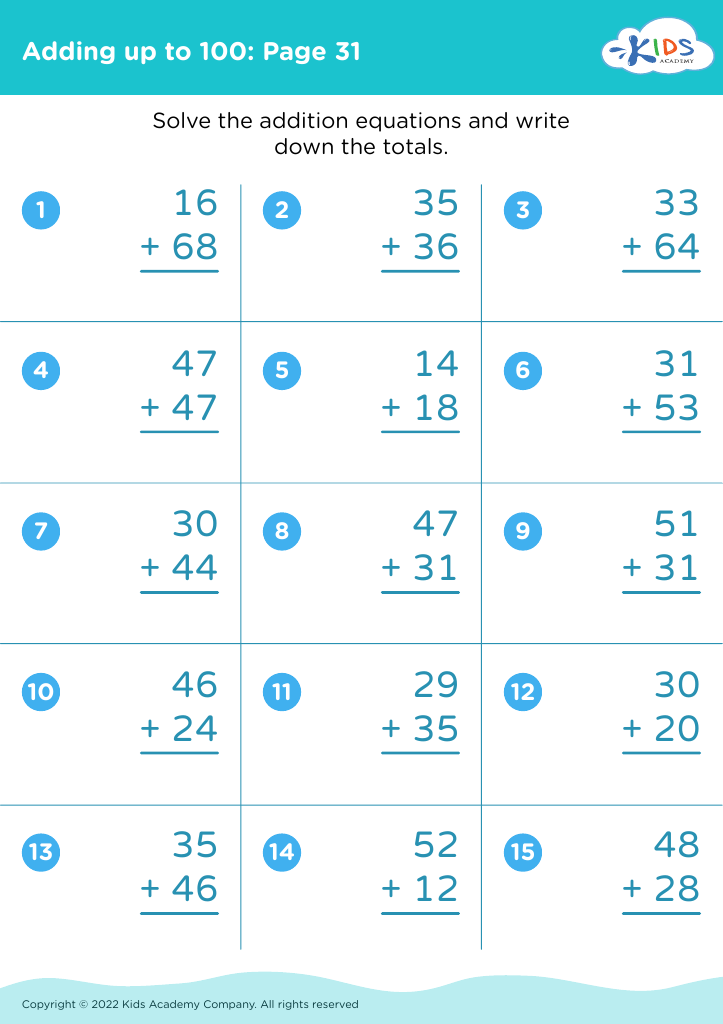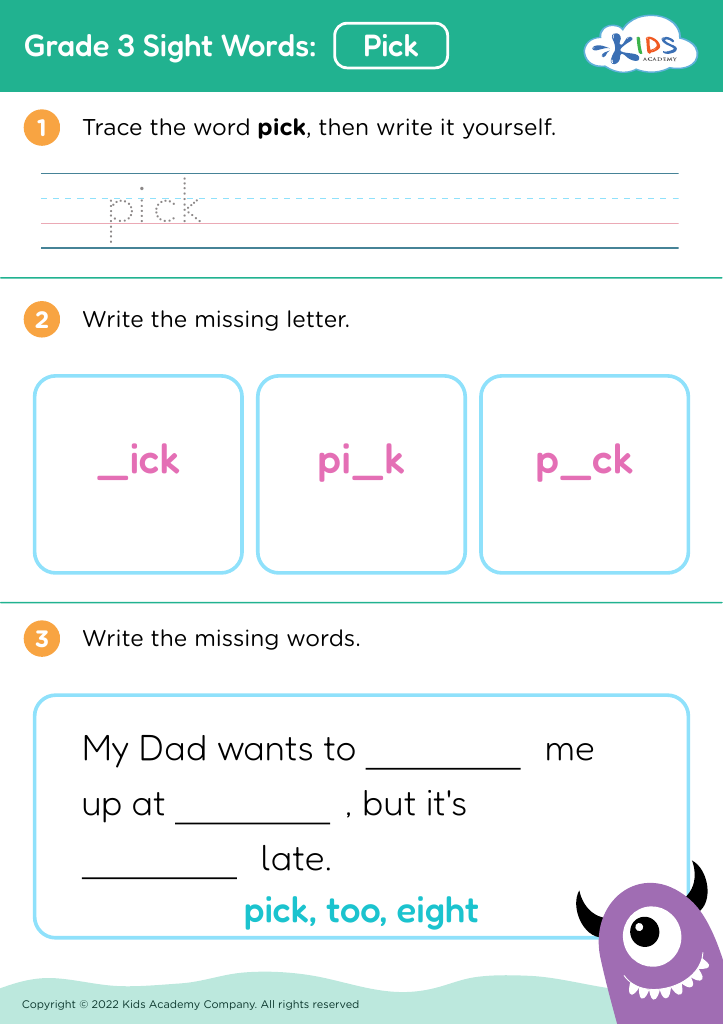Improve fine motor skills Worksheets for Ages 6-9
3 filtered results
-
From - To
Discover our engaging "Improve Fine Motor Skills Worksheets" designed for children ages 6-9. These worksheets feature a variety of fun activities that help enhance hand-eye coordination, dexterity, and grip strength. Through tracing, cutting, coloring, and sorting tasks, children will develop essential skills that are crucial for their academic success and daily life. Each worksheet is thoughtfully crafted to capture your child's interest while making learning enjoyable. Perfect for at-home practice or classroom resources, our printable worksheets provide an excellent opportunity for young learners to grow their motor skills and boost their confidence. Start your child’s fine motor skill journey today!
Improving fine motor skills in children aged 6 to 9 is crucial for their overall development and learning. These skills, which involve the small muscles of the hands and fingers, are essential for various everyday tasks, from writing to tying shoes. As children in this age group make strides in academic and social settings, strong fine motor skills can greatly enhance their confidence and independence.
Parents and teachers should care about fine motor development because it significantly impacts academic performance. Proficient handwriting, the ability to manage tools like scissors and keyboards, and engagement in art activities all depend on these skills. When children struggle with fine motor tasks, they may avoid activities that require writing or crafting, which could lead to disengagement or decreased self-esteem.
Furthermore, fine motor skills are tied to cognitive development. Activities that improve these skills, such as puzzles, crafts, and games, also foster problem-solving, concentration, and creativity. Encouraging fine motor skill development helps lay a strong foundation for future learning and builds a pathway towards lifelong success. By engaging children in these activities, parents and teachers contribute to their growth in multiple domains, ensuring they are well-prepared for future challenges both in and out of the classroom.




















